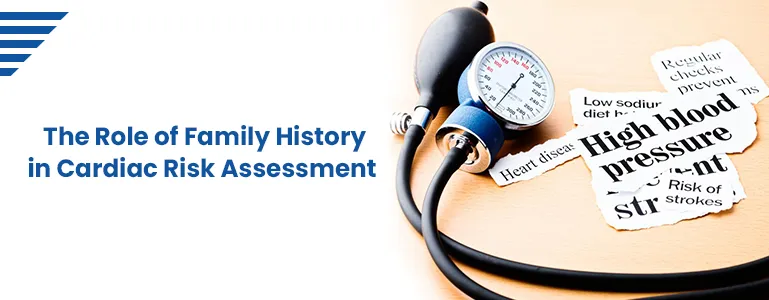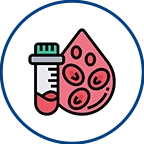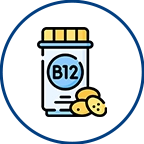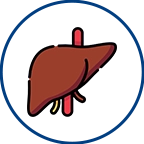The Role of Family History in Cardiac Risk Assessment

Cardiovascular diseases, including heart disease and stroke, are among the leading causes of death worldwide. While lifestyle factors like diet, exercise, and smoking play a significant role in determining an individual's risk, family history can be a crucial piece of the puzzle. In this blog, we'll explore the importance of family history in Cardiac Risk Assessment, how it impacts your heart health, and what you can do to manage potential risks.
Home Sample Collection
Understanding Family History and Cardiovascular Risk
Family history refers to the presence of heart disease, stroke, or related conditions in your immediate family, including parents, siblings, and grandparents. When assessing cardiac risk, healthcare providers consider the following factors:
-
Premature Cardiac Events: If a close family member had a heart attack or stroke at an early age (typically before age 55 for men and 65 for women), it may increase your risk.
-
Multiple Affected Relatives: Having more than one close relative with cardiovascular disease can raise your risk further.
-
Specific Conditions: Different heart conditions, such as coronary artery disease, arrhythmias, and heart failure, can be hereditary.
Why Family History Matters
Family history matters in cardiac risk assessment for several reasons:
-
Genetic Predisposition: Genetic factors can influence your susceptibility to heart disease. If family members share certain genetic traits, your risk may be higher.
-
Shared Environment and Lifestyle: Families often share similar lifestyles and dietary habits, which can contribute to heart disease risk. Understanding these patterns can inform prevention strategies.
-
Early Detection: Knowing your family's cardiac history can prompt earlier screening and intervention, potentially preventing or mitigating heart problems.
What Can You Do?
-
Collect Your Family Health History: Start by gathering information about heart disease or related conditions in your family. Create a comprehensive family health history record to share with your healthcare provider.
-
Inform Your Doctor: Discuss your family history with your healthcare provider during routine check-ups. They can assess your risk and recommend appropriate tests or preventive measures.
-
Lifestyle Modification: Regardless of your family history, adopting a heart-healthy lifestyle can reduce your risk. Concentrate on keeping a healthy diet, getting regular exercise, quitting smoking, and controlling stress.
-
Regular Check-ups: Your doctor might advise more frequent checkups and screenings, such as cholesterol checks and blood pressure monitoring, if there is a history of heart disease in your family.
-
Genetic Testing: To find particular genetic markers linked to heart disease, genetic testing may in some circumstances be advised. This can help tailor your prevention and treatment strategies.
Conclusion
Family history plays a crucial role in cardiac risk assessment. Understanding your genetic predisposition and shared lifestyle factors can help you and your healthcare provider make informed decisions about prevention and early intervention. Remember that even with a family history of heart disease, lifestyle modifications can significantly reduce your risk and contribute to a healthier heart. Always seek the advice of a medical expert for specific advice on reducing your cardiac risk.
Frequently Asked Questions
How does family history affect my risk of developing heart disease?
Family history can influence your risk of heart disease due to shared genetic factors, lifestyle habits, and environmental influences within your family.
What specific conditions should I inquire about in my family's cardiac history?
Ask about heart attacks, strokes, coronary artery disease, high blood pressure, high cholesterol, diabetes, and any other heart-related conditions among your immediate family members.
At what age should I start discussing my family's cardiac history with my healthcare provider?
It's essential to discuss your family's cardiac history with your healthcare provider as early as possible, even in your twenties or thirties, to assess your baseline risk and plan preventive measures.
Does a family history of heart disease mean I'll definitely develop it too?
No, a family history of heart disease doesn't guarantee that you'll develop it. It increases your risk but doesn't determine your fate. Lifestyle factors and preventive measures play a significant role in managing risk.
Are there specific genetic tests available to assess my cardiac risk based on family history?
While there are genetic tests that can identify specific risk-associated genes, they may not be necessary for everyone with a family history of heart disease. Your healthcare provider can determine if genetic testing is appropriate for you.
What can I do to reduce my cardiac risk if I have a family history of heart disease?
Lifestyle changes are crucial. Focus on a heart-healthy diet, regular exercise, not smoking, and stress management. Discuss preventive medications or interventions with your healthcare provider if necessary.
Should I inform my children about our family's cardiac history, even if they're still young?
Yes, it's a good idea to inform your children about the family's cardiac history when appropriate. This knowledge can empower them to make healthier lifestyle choices early on and prioritize heart health throughout their lives.
Book Appointment
Our Locations Near You in Hyderabad
3KM from Banjara Hills
1.9KM from Yusufguda
3KM from Madhura Nagar
5KM from Shaikpet




